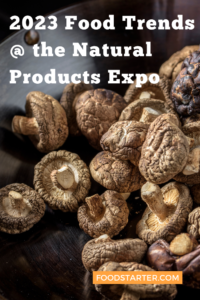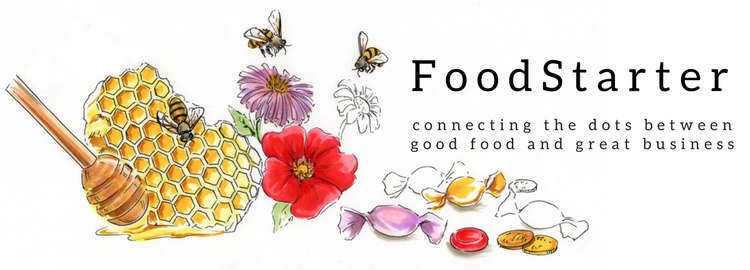 Didn’t make it to 2023 Natural Products Expo? Here’s what you missed…
Didn’t make it to 2023 Natural Products Expo? Here’s what you missed…
Grain free, gluten free, organic foods and beverages will always be among the thousands of food company booths lining the floors at the Anaheim Convention Center each March for Expo West.
Every year there is some ingredient or packaging twist that appears and makes the list as a new trend. Here’s what stood out to food trend experts and retailers at the 2023 Natural Products Expo.
- Vegan cheese products – The Plant-based Food Association tasted plant-based (vegan) cheeses and foods made with vegan cheese.
- Functional foods – The natural products industry’s trend research organization SPINS spotted lots of foods and drinks packed “meant to boost immunity, make your skin glow, or promote gut health.”
- Upcycling everywhere – From packaging to ingredients designed to decrease food waste and other waste, Progressive Grocer noted companies featuring the Certified Upcycled label. (Renewal Mill‘s upcycled Brownies made with Okara soy flour are exceptional!)
- Chewy rice treats, from canned boba drinks and and snackable, gluten-free mochi products stood out to Food Navigator as a major food trend.
- Medicinal mushrooms also stood out as an ingredient in many mushroom-based and mushroom-enhanced foods on Food Navigator’s trend list both for the fungi’s nutritional qualities and as a main course, thanks to its meat-like texture.
- Probiotics everywhere for gut health is an ongoing trend, rounded up by Progressive Grocer. Interestingly fermented foods were not prominant in the trend lists, although I predict they will be next year.
- Fun, natural frozen foods stood out to food marketplace and community Foodboro. (Costco and other big-box stores have become a boon for consumers seeking organic and natural frozen foods, something to think about if you are planning a retail strategy.)
5 Key Natural Food Trends in 2023 for Food Product Planning
A team of New Hope Network content experts and trend forecasters compiled 5 emerging trends in natural and organic that are expected to grow in reach and importance in the coming year.
Susie’s summary: What’s old is new again!
- The intersection of health systemsWe’ve come to recognize how the gut influences all health systems in the body. Driving this is the vast human microbiome, colonies of microorganisms that outnumber human cells by 10 to 1. Consumers are learning this, but the learnings aren’t often actionable.Companies approaching this trend are looking at how foods and supplements can support a healthy microbiome and educating on how a healthy microbiome means better brain health, better heart health and even improved mood and mental health.
- Delivering on climate commitments
In the diverse space of sustainability, many mission-conscious brands are bringing climate solutions to market. Carbon accounting and carbon-neutral or -negative commitments are making the rounds among emerging and established brands.Such commitments and initiatives can not only earn consumer trust and have a positive environmental impact, but also, as is the case with transitioning to renewable energy, could help cushion a brand’s production costs from volatile oil prices. One potential outcome? Helping to keep consumer prices down when fossil fuel prices are high. - Radical transparency
Considering food tech, climate change, inequity issues and continued use of vague terms such clean or sustainable, consumers want to know the who, what, where, when, why and how of the products they are buying—and they depend on brands and retailers to help them navigate it all.Certifications, audits and dietary guidelines can help; companies can also achieve transparency by disclosing company goals (and progress on them), ingredient lists and new initiatives. The key to success is to be clear, authentic and truthful, which also means being vulnerable. - Born of sustainability
As more consumers wake up to food’s relationship to environmental health, founders are serving up food and other CPG products with environmental solutions at the forefront. These companies become enterprises on a mission to use food and agriculture to address issues such as climate change, biodiversity loss and social justice.The environmental mission is so woven into their value proposition that it is a key driver of consumer decision making. Storytelling—including on packaging—plays an important role in delivering these mission-driven concepts to market, so more entrepreneurs are likely to share their solution-driven journeys. - The “subscriptionalization” of everything
Meal kits have people cooking at home and eating healthier. Personalized nutrition subscriptions offer pre-sorted supplements tailored to the consumer’s needs and goals and a model that encourages sticking to that regimen.Both of those could fit into a retail universe, as smart retailers are giving their customers a reason to shop brick- and mortar regularly and helping customers achieve their wellness goals while they are in-store.(Then there’s Amazon, with the ability to subscribe for product deliveries.)






